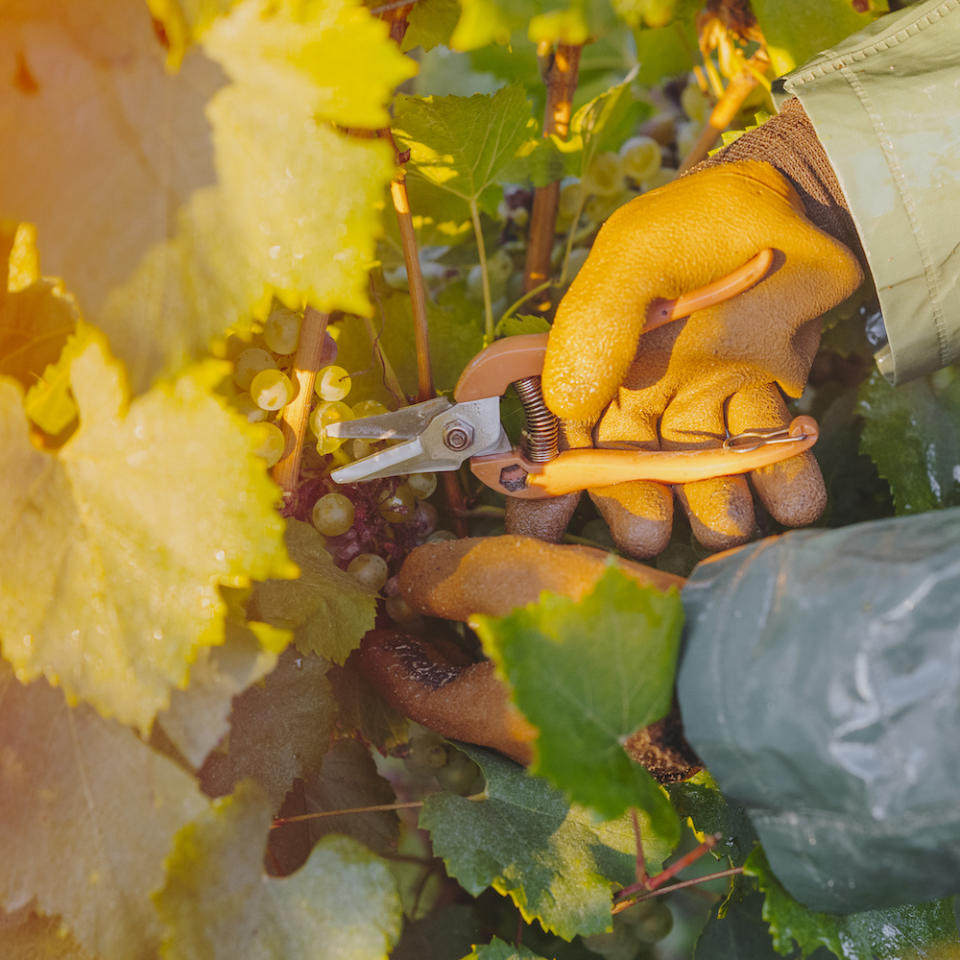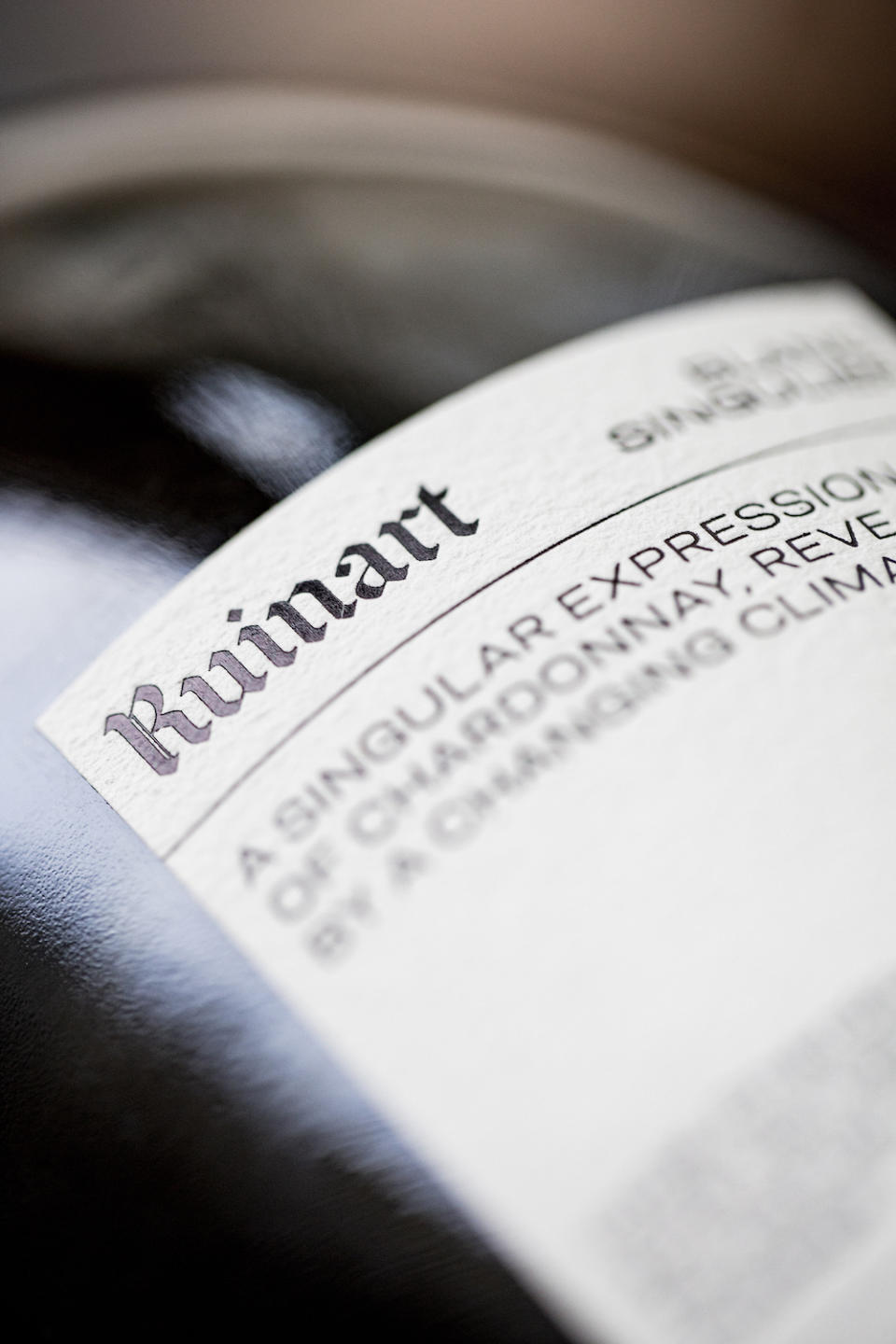Ruinart Is Releasing a New Champagne That Shows the Effects of Climate Change on Wine

Long before the likes of Greta Thunberg and fellow environmental activists were sounding the alarm on climate change—even before Al Gore told us An Inconvenient Truth—those who made their living off the land could already sense the profound shift underway.
“Since the ‘90s, an upheaval has been felt in the land [and] in the vineyard,” Frederic Dufour, Ruinart’s president and CEO, tells Robb Report, “Winegrowers were the first to feel it in their daily life. Climate variations are increasing and accelerating, becoming sudden and unpredictable. They disrupt the vine cycle and the ripening of the grape berry. These profound modifications have an impact on the wine.”
As these changes became more prevalent, Ruinart decided to show wine lovers climate change’s impact the best way they knew how: through the wine itself.
The renowned Champagne house has released a new expression of its Champagne, Ruinart Blanc Singulier Edition 18, which it describes as a “nature-led cuvée that tells the story of a singular year as impacted by environmental factors.”
Click here to read the full article.
The Edition 18 refers to 2018, an unusual year that Ruinart’s cellar master Frédéric Panaïotis portends vintages to come. “Because of a warm and sunny season, the vegetative cycle of the vine was very rapid, while the ripe and early harvest began in August,” Panaïotis says. “These particular climactic conditions brought out different aromatic balances, reinforcing our conviction that these variations were bound to recur. We have therefore decided to conceive this unique cuvée to bear witness to the impact of climate change in Champagne,” While all Champagne is affected by the weather of the growing season, the team at Ruinart is choosing to highlight the conditions through this bottling.

Made only with Chardonnay, Blanc Singulier is a blend of 80 percent grapes from the 2018 harvest and 20 percent reserve wines, produced in the brut style with zero dosage. The blend comes from about 20 different crus in the Champagne region. The reserve wines are made from a “perpetual reserve” first begun in 2017, when the first blending of Blanc Singulier, called the Lab Edition, was produced. It is composed of wine from 2017 and 2016 and is stored half in oak barrels and half in stainless steel tanks. Edition 17 is considered the “test cuvee” and 2018 is the first official release.
The medium straw-colored Champagne offers a steady flow of fine bubbles and a bouquet of lemon curd, bergamot, vanilla, nutmeg, and hazelnut. It is generous on the palate, with gorgeous acidity and lemon tart, Fuji apple, Bartlett pear, butterscotch, and toasted nut flavors and a closing note of coffee bean. Its dark glass bottle prevents the development of “light taste,” a deterioration in the flavor of the wine due to exposure to light—while eliminating the need for secondary packaging such as a box or wrapping to block out light.
In addition to calling attention to the effects of climate change, Ruinart is taking steps to mitigate it as well. One activity is the regeneration of the forest and soil to build a healthier ecosystem. In conjunction with Reforest’Action, an expert in the creation and management of forests, a tree-planting campaign was begun in 2021. By the end of this year, more than 20,000 trees and shrubs will have been planted because of this effort. Within the winery, all water used for washing is treated before being released and reused. To reduce fuel usage and carbon impact in shipping, 85 percent of Ruinart Champagne is shipped by sea and 15 percent is shipped by land. No air transport is used for delivery of Champagne or for bringing raw materials into the winery. Within France, 55 percent of deliveries are made using vehicles powered by natural gas or electric.

In the past 10 years, the house has reduced the use of fertilizers, insecticide, and similar products by 40 percent and no herbicides are used at all. They have also used an “eco-design” approach since 2012, and no plastic products have been utilized in packaging since 2015, favoring wood, paper, and cardboard from France and elsewhere in Europe. Although Blanc Singulier’s dark bottle eliminates the need for exterior packaging, in 2020 Ruinart introduced “second skin,” a paper casing that is nine times lighter than its predecessor, causing a 60 percent reduction in carbon footprint.
“Despite the mitigations that can be brought through [our] practices, climatic change strongly influences the properties of the wine, and will also have an influence on the aromatic profiles,” Dufour says. “It is a global concern that we share with wine lovers. They are committed to preserve both the quality of the wine and our relationship with nature. They want to learn more about it to choose more carefully. It is our responsibility to take action and share knowledge with them.”
Ruinart Blanc Singulier Edition 18 is available for purchase at Maison Ruinart’s boutique in Reims, France and at select restaurants throughout the United States and France.
Best of Robb Report
Why a Heritage Turkey Is the Best Thanksgiving Bird—and How to Get One
The 10 Best Wines to Pair With Steak, From Cabernet to Malbec

